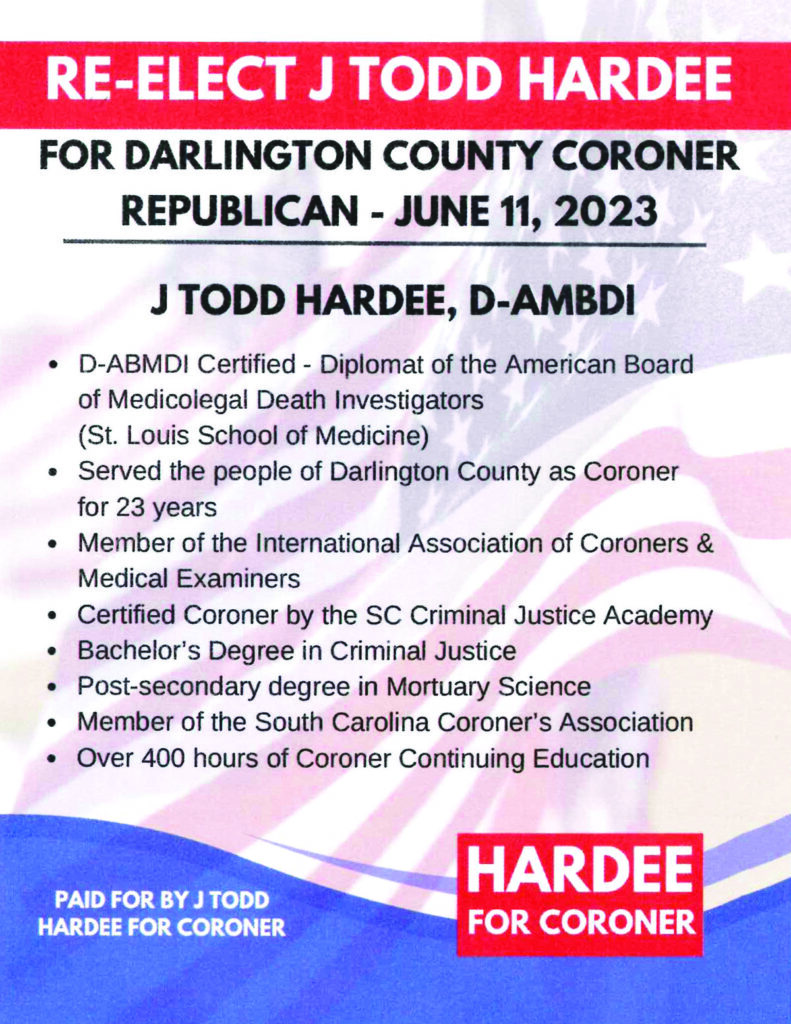Former NBA player tells students to build a strong foundation for life


By Melissa Rollins, Editor, editor@newsandpress.net
In 1972, Dwight Davis was drafted third overall in the NBA. A decade later Davis was a shell of that person after falling into a cycle of drug use, eventually ending up homeless. Students at Hartsville High School recently heard from Davis, who shared how he found his footing again after an injury ended his short professional basketball career and how bad choices he made derailed his life.
“For me it is an honor and a privilege to be here and share with young folks a little bit about my life, not just the highlights but the lowlights,” Davis said. “I tell kids, ‘Let me be your crash dummy‘ if you ever think about doing something ill advised or stupid.”
Davis told the student-athletes that he was a straight-A student in school and that he would never have predicted his life taking the path that it did.
“I had my first drink when I was 21-years-old,” Davis said. “That was after I was drafted. I was going to chill out and be cool. Over a period of time, I started experimenting with drinking and I got to marijuana. By my second year in the NBA, I was smoking a little pot. A little pot turned into a lot of pot.”
Davis said that he made poor decisions when it came to the people that he spent his time with.
“With the pressure of the friends I’m around, hanging with, I got in to cocaine; I got in to cocaine my third year in the NBA,” Davis said. “Those things that I abhorred all through high school, all through college, I find myself partaking. I wanted to be cool.”
In his fifth year in the NBA, the third-round draft pick suddenly found himself unable to lace up and take to the court.
“My fifth year, I tore my left quadriceps tendon,” Davis said. “We were playing the Boston Celtics in Oakland. February 20, 1977…I felt like somebody kicked me in my knee…that was the last day I was on the basketball court. They did the surgery, back then surgery wasn’t as cool as it is now, and I wore a cast for about six months. When they took the cast off, my leg looked like spaghetti but I was determined I was going to get back to (basketball).”
Getting back to playing basketball meant that he was going to have to lose his recreational bad habits.
“One of the things I knew I was going to have to do was I was going to have to stop my recreational use of cocaine and pot,” Davis said. “So, I said to myself ‘On this day you are going to stop using cocaine and you are going to stop using pot and you are going to start working to get your career back.’ Then the day would come that I was supposed to stop and guess what, I didn’t stop. It never occurred to me in the beginning that the reason I didn’t stop was because I couldn’t stop. I kept resetting the date and resetting the date. About a year after the surgery two things became apparent to me. One: I was not going to be playing basketball again and two: I had a problem, a cocaine problem. That cocaine problem became a crack problem because I became very despondent because I couldn’t get back to my basketball.”
For the next twenty years, Davis struggled every day. He was homeless, got arrested, overdosed and decided several times that his life wasn’t worth living anymore.
“The line was not like this line here (on the basketball court); it is an invisible line,” Davis said. “This conversation is not just about drugs. It is about alcohol, it is about domestic abuse. You cross that invisible line, you cross that boundary…it is very, very serious.”
Davis left the students with an acronym to think about when making decisions in their life.
“The world can be your oyster; it really can,” Davis said. “But you have to build that foundation. In that foundation has to be self-respect, respect for others, building community. You have three, four buddies? That’s your community man. Hold them accountable. In the Bible there is a verse that talks about you reap what you sow. So I use the acronym R.E.A.P.
R: Be reliable.
E: Be efficient. If there is a better way to do something effectively, expertly, in less time, do it that way. Don’t languish with it; don’t try to stretch it out so you can make a couple of bucks.
A: Be accountable. All of you should be teaching somebody something. If you are not giving something to somebody as old as you are, you are wasting your life. When you teaching someone something, you are building up your ability to do the same thing.
P: Prepare. Always be prepared. If you find yourself running always five minutes late to work or you’re always late to every class, come on. Do a better job.”


